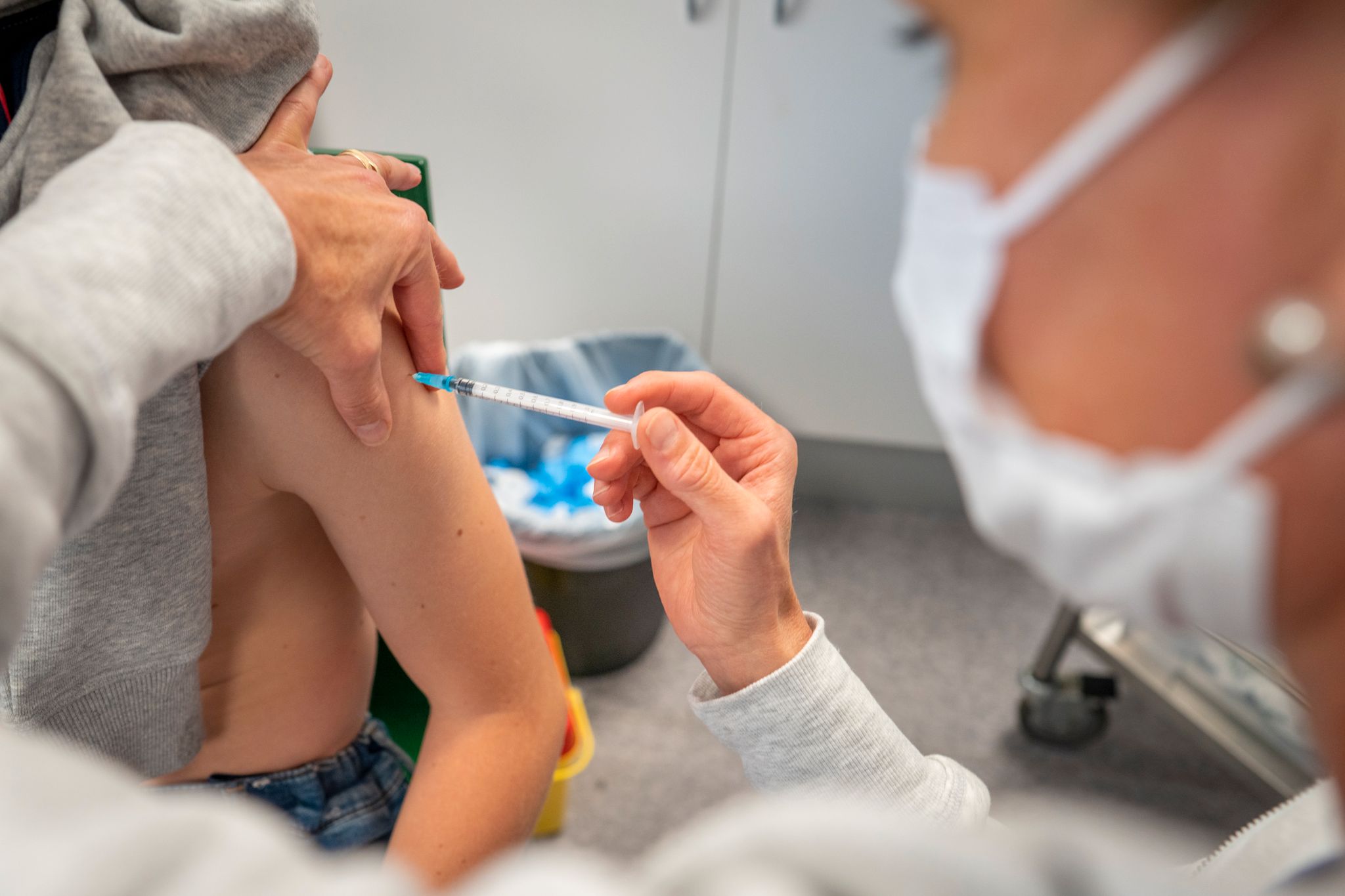Corona vaccine is now offered to children and young people aged 12-15. This can lead to heated discussions over the dinner table.
—
On Thursday, it became clear that the government is in favor of children aged 12-15 also receiving one dose of the Pfizer vaccine.
At the press conference, Prime Minister Erna Solberg said that children have the right to be heard when it comes to the question of vaccination.
But what does that really mean?
Can reluctant children and young people aged 12-15 be forced to be vaccinated? And can the children decide for themselves that they will take the vaccine if the parents say no?
In the field of health, children are of age when they are 16 years old. This means that 16-year-olds have the right to decide whether they want to take the coronary vaccine or not, no matter what the parents may think about it.
For people under the age of 16, it is the parents who make health decisions, but children and young people must be heard in decisions concerning their health.
– Parents have a duty to guide and listen
– Parents have a duty to guide their children and listen to their opinion, says senior adviser Elin Saga Kjørholt at the Children’s Ombudsman.
– Both the Constitution and the Convention on the Rights of the Child, which are part of Norwegian law, stipulate that children have the right to be heard. Their opinion should be given weight according to age and maturity. From the child is 12 years old, great emphasis must be placed on what the child thinks, she says.
She emphasizes that it is important that children and parents have a good dialogue.
– But what if the 14-15-year-old opposes being vaccinated, and the parents want it?
– In most situations, the parents have the right to decide over the children until they turn 18, but in health matters, ie 16 years.
So then the parents have to say: “I have listened to you and heard your opinion. I have nevertheless decided that you should take the vaccine, because ….. »
She adds that the parents cannot physically force the child to take the vaccine.
– There are clear limits to using physical force against children. It is considered violence to physically move the child from one place to another if the child strongly opposes moving, she says.
– But we really can not hope that the conflicts will be so sharpened. The vast majority of parents will guide and give good advice. The usual thing would be to solve this by talking together if a disagreement arises, she says.
Both parents must consent
Kjørholt adds that there may be greater disagreement about vaccination between parents than between children and parents.
In the case of joint parental responsibility, the consent of both parents is required for the child to be vaccinated.
– The fact that both parents must consent is a natural starting point. But from experience, it can create challenges for some. In some cases, parents who do not live together will have difficulty agreeing, or simply lack contact. Here it should be looked at whether there is a need for an exception, says Kjørholt.
– What about the opposite situation – the child wants to be vaccinated, while the parents are skeptical of the vaccine and say no?
– It is tricky, since the parents’ decision can have major consequences for the child. There are many situations where both we and children who turn to us believe that adults’ decisions should have been possible to be judged by others. But children have no place to go to have their parents’ decisions reviewed, no matter how serious the consequences may be, she points out.
– Are you happy with today’s decision to vaccinate children aged 12-15?
– We do not take a position on the medical arguments for and against. But we are concerned that corona closure should not lead to even greater strain on children.
– When the authorities dropped the decision to offer a vaccine, this will in the long run lead to children being able to move more freely. We are happy about that, she says.
The Norwegian Institute of Public Health is working to develop adapted information material for children. This will be available in a few days on fhi.no.
Bærum out early
Bærum municipality was quickly out with the new vaccine offer. Vaccination for the 10th graders will start on Wednesday 8 September, it says on the municipality’s website.
All 10th graders are invited to Bærum vaccine center in class. The schools send out information about the time, and a consent form. Both parents must sign consent digitally in order for the young person to be vaccinated.
The municipality is not allowed to vaccinate young people without the consent of both parents, it says on the website.
There are just over 6,000 children and young people in the age group 12–15 in Bærum.
–

